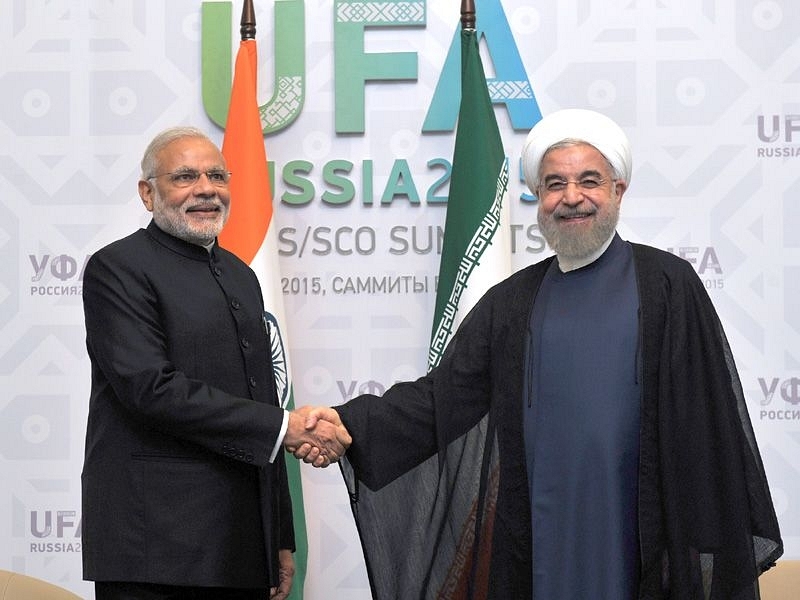Insta
India Tells Iran To Stay Away From Its Internal Matters After Their Minister Calls Delhi Riots ‘Against Muslims’

PM Modi with Iran’s President Hassan Rouhani
India on Tuesday (3 March) summoned Iran's envoy in the capital to register its protest against Iranian Foreign Minister's scathing comments on the recent communal riots in Delhi over Citizenship (Amendment) Act (CAA).
The recently enacted law, CAA fast tracks citizenship of persecuted religious minorities of three Islamic theocratic countries neighbouring India --Pakistan, Bangladesh and Afghanistan.
On Monday, Iran's Foreign Minister Javad Zarif tweeted, "Iran condemns the wave of organised violence against Indian Muslims. For centuries, Iran has been a friend of India. We urge Indian authorities to ensure the wellbeing of all Indians and not let senseless thuggery prevail. Path forward lies in peaceful dialogue and rule of law."
Official sources said that Iranian envoy to New Delhi, Ali Chegeni was summoned and told that Zarif had commented on the matters "purely internal" to India. The Ministry of External Affairs, last week had urged foreign leaders and institutions to refrain from making irresponsible statements.
The CAA triggered widespread violent protests in India. Last week during United States (US) President Donald Trump's first state visit to India, several parts of Delhi, the epicentre of violent protests against the CAA, erupted in communal riots.
Over 45 people of both Hindu and Muslim communities were killed along with some security officials too.
Incidentally, Iran itself has nationwide protests against rise in fuel prices and for change in the Islamic regime led by the supreme religious leader Ali Khamenei, erupted in Iran last year. Around 2,000 protestors have been killed and over 7,000 arrested by the government in Iran so far.
(With inputs from IANS)
Introducing ElectionsHQ + 50 Ground Reports Project
The 2024 elections might seem easy to guess, but there are some important questions that shouldn't be missed.
Do freebies still sway voters? Do people prioritise infrastructure when voting? How will Punjab vote?
The answers to these questions provide great insights into where we, as a country, are headed in the years to come.
Swarajya is starting a project with an aim to do 50 solid ground stories and a smart commentary service on WhatsApp, a one-of-a-kind. We'd love your support during this election season.
Click below to contribute.
Latest